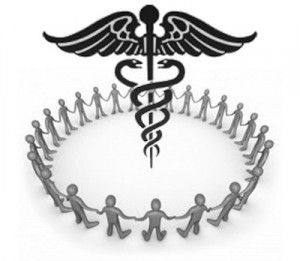f=”https://www.lucaslshaffer.com/wp-content/uploads/2011/01/social_media_in_health_and_medicine.jpg”> So many buzz words have been struck into the minds of american”s over the past decade. Much of the information has left people with little knowledge about a lot. While terms like “social medicine”, “socialism” and “social media” and “social (append edgy cool name here)” have uplifted a world community debate, we have yet to deliver this communal aspect to the medical industry in a consumable fashion.
So many buzz words have been struck into the minds of american”s over the past decade. Much of the information has left people with little knowledge about a lot. While terms like “social medicine”, “socialism” and “social media” and “social (append edgy cool name here)” have uplifted a world community debate, we have yet to deliver this communal aspect to the medical industry in a consumable fashion.
Well, maybe we have and no one is paying attention. Here today, there exists a business model that reflects the changing community structures that did not exist in medicine 15 years ago. In fact, since 2003, an entire professional society has existed to direct and mold this innovative concept that is blending newer community roles with a few-generations lost care-giver ideal. This model and concept is known as concierge medicine.
In a July 2005 f=”http://www.lumrix.net/health/MD2_International.html” target=”_blank” rel=”nofollow”>article found in Worth magazine, a review on this concept under the heading “The Highly Attentive Approach” established credit for the concept of concierge medicine to Dr. Howard Maron. He was quoted as stating, “…I only came up with the concept—not the term concierge medicine. I know what a concierge is, but to describe what I do as simply opening doors and directing people…. I prefer highly attentive medicine.” Dr. Maron exists as a consultant assisting physicians in the marketplace to help discover this model and work it into their practice.
As mentioned, the Society for Innovative Medical Practice Design (SIMPD) has existed since 2003. As of mid 2008, this organization had about 200 members. In 2009, SIMPD estimates that there are over 5000 physicians nationwide. I would say that is good growth. In early 2010, SIMPD changed their name to the American Academy of Private Physicians (f=”http://www.aapp.org/” rel=”nofollow”>http://www.aapp.org/).
Ok, so what does this have to do with social medicine?
It has less to do with socializing medicine (as a popular debate for the 2010 elections) and more with returning to an older, more communal period where health professionals lived in our neighborhoods and cared for the ones closest to them. Concierge medicine is a re-write to a doctrine older than anyone reading this. This concept is allowing medicine to return to the personal relationships. We all claim to have “great” relationships with our doctors and most of us do. But what ever happened to house visits?
Could this be the next step, or compromise, for our healthcare industry?
The controversy surrounding this concept is no different than any other. It caters to the wealthy (or who ever can afford) while demand is driven sky high. John Abramson The reason is because after 18 there are no mandatory training requirements and youngsters have been waiting until they can turn 18 to avoid paying for training and have the stiffer f=”http://best-driving-school.com/”>best-driving-school.com requirements imposed on them. mentioned in Overdosed America, MD, (pages 169-194) that the proponents to the concept find that there is more demand for the service than ever.
Proponents of concierge claim that it meets consumer demand, allows physicians to provide the treatment they deem necessary, and improves quality of care by increasing the amount of time that can be spent on preventative medicine. Preventative care such as lifestyle advice, and follow-up phone calls and emails are not usually reimbursed by insurance. Physicians significantly reduce the number of The numerous questions that could be asked concerning drug screenings include; I am taking a prescription medication, will the medication make me f=”http://buy-detox.com/shop/home-test-kits”>home drug test positive? What drugs could interfere with opiates and make me f=”http://buy-detox.com/shop/home-test-kits”>home drug test positive to it? How long can a urine specimen be stored before testing? And what are drug f=”http://buy-detox.com/shop/home-test-kits”>home drug test sensitivity levels and what are the standards established by common drug regulation agencies? And many more. patients they see in a day, which allows them to spend extra time and attention with each patient. It has also been noted that while some concierge medicine practices do not accept insurance, all of their patients are encouraged to carry health insurance for services utilized outside of the practice.
-John Abramson
As our nation struggles with healthcare costs after decades of abuse from insurance agencies, malpractice lawsuits and inflated prescription drug costs, we can see a shift in a more social or “person” relationship needed from our doctor”s and medical professional arena. I personally interviewed two primary care physicians before finding an excellent doctor who fit my criteria. Unfortunately, insurance carrier was first on the list.
Will we be able to mesaure a more successful healthcare system by the money our patients save or by a high quality relationship? I do not know. I do see that concierge practices can offer both as their popularity swells. The concierge practices are few and far between which allows their prices to remain at a premium. As more doctors and medical professions open their business up to the concept then I would estimate a cost structure more suitable for the average patient.
In the end, our healthcare is in a state of disrepair. I am glad to hear that a focus on returning community back into medicine is upon us. I do not think this is a quick fix but could have more to do with a long term solution on the culture of medicine in America. Social media allows us to connect the fragmented societies and bridge the ideas of everyone.
What would happen if we paid attention to the communities needs over the “national” ones? Is there a difference?





